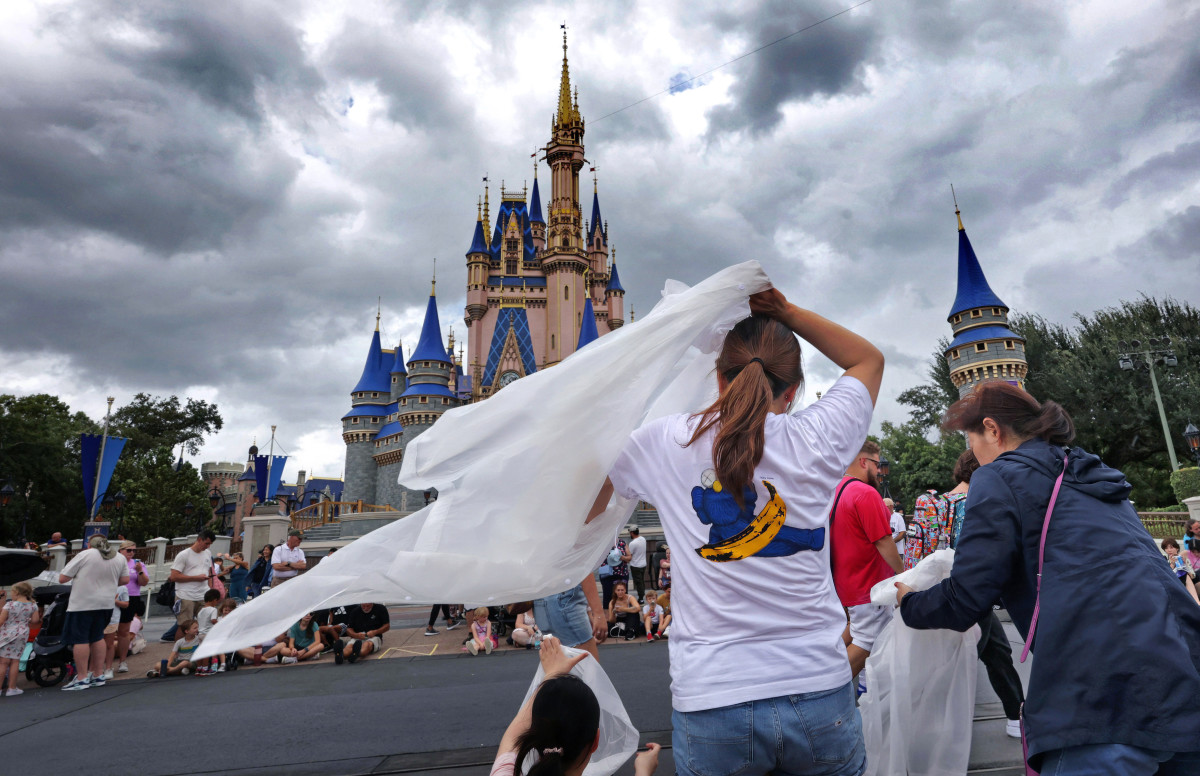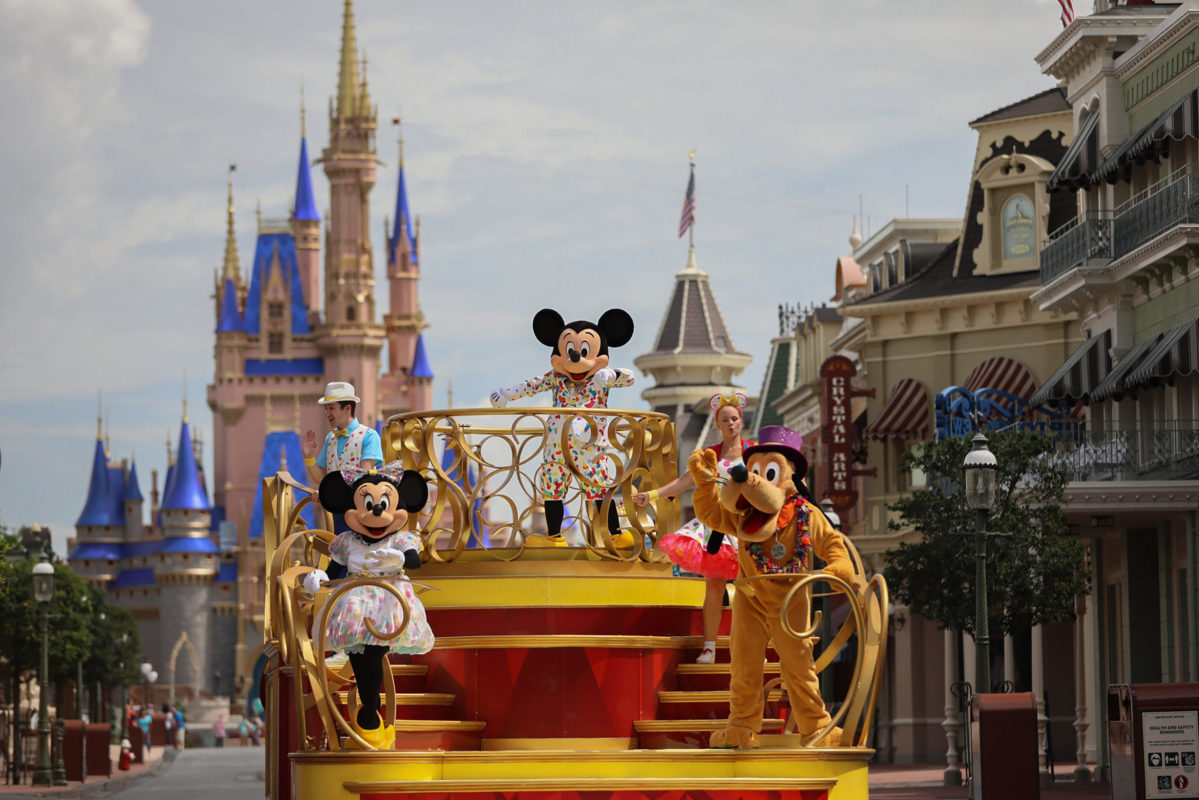
It is no secret that Disney (DIS) rules the amusement park industry with an iron fist as Disney World and Disneyland are some of the most visited theme parks in the world. Overall, Disney has 12 theme parks and six resort locations worldwide, which generate billions of dollars for the company every financial quarter.
Despite their popularity, Disney’s theme parks in the U.S. recently faced some unexpected challenges, and the company is calling out the source of the problem.
💰💸 Don't miss the move: Subscribe to TheStreet's free daily newsletter💰💸
Disney’s fourth-quarter earnings report for 2024 revealed that while revenue for its theme parks in the U.S. increased by 2% year-over-year, operating income for these locations declined by 5%. Operating income is a company’s profit after expenses.
Related: New Disney World photo sounds alarm on a growing problem
Disney unveils major change in consumer behavior
In the report, Disney notes that the decrease in operating income is due to higher costs such as inflation and fleet expansion of its Disney Cruise Line. It also claims that the theme parks faced “lower volumes attributable to declines in attendance.”
Disney states that the decrease in visitors reflects the impact of Hurricane Helene, which made landfall in Florida in September, and Hurricane Milton, which directly hit Central Florida the following month. The hurricanes forced Disney World to shut down several operations, costing the company about $120 million.
It is also important to note that in October, Disney announced price increases for several Disneyland and Disney World tickets and passes.

Disneyland increased ticket prices by $7 to $31, depending on the type of ticket, and Magic Key Passes at the theme park increased between $100 and $125.
At Disney World, annual passes spiked by $30 to $100, while tickets for busy days in November and December this year increased by $10 to $15. Prices for food and beverages at multiple dining locations at the theme park also increased.
The price hikes arrived during a time when Disney vacations are putting some visitors into financial debt.
According to a survey from LendingTree last year, 24% of consumers have gone into financial debt in order to fund a Disney trip. For consumers who are parents of young children, that figure increased to 45%.
Consumers in the survey listed unexpected high costs as a major factor of their debt with 65% claiming that Disney’s in-park food and beverages cost “significantly more” than they budgeted for.
A trip to Disney may soon get more expensive
Despite recently facing a dip in operating income at its U.S. theme parks, Disney is predicting that for fiscal year 2025, operating income for its experiences segment (which includes U.S. and international theme parks) will increase by 6% to 8%.
Gavin Doyle, founder of MickeyVisit.com, claims that Disney can achieve this growth in two different ways.
Related: Disney World hopes to win back consumers with generous offer
“They can get there by having more people in the door, or by having people who come in the door spend more,” said Doyle.
Doyle also highlighted that this year is a big year for Disney as Disneyland is celebrating its 70th anniversary, and Disney World is debuting its new nighttime parade this summer. Both events are expected to draw in bigger crowds at both theme parks.
Additional price increases at Disney may not sit well with consumers as the company recently faced backlash on social media for having high prices at its theme parks.
For example, in October, after Disney World revealed its menu prices for its new Cake Bake Shop Bakery at Epcot park, which included $22 for a slice of cake and $8 for a single scoop of ice cream, consumers took to social media to complain that the prices were "obscene.” Since then, Disney World opted to lower prices for a few items on the menu.
More Disney:
- New Disney World photo sounds alarm on a growing problem
- Disney World hopes to win back consumers with generous offer
- Disney dodges ‘woke’ backlash with major change to new series
Disney also faced criticism from consumers over the price of its new Lightning Lane Premier Pass, which first debuted at Disneyland and Disney World in October for around $400 per person.
The pass allows guests to skip standby lines and grants them one-time access to each Lightning Lane attraction for one day.
The price tag for the pass currently ranges between $300 and $400, depending on the day, park and demand.
During an earnings call on Feb. 5, Disney Chief Financial Officer Hugh Johnston said that the company is still “learning how to use” its new Lightning Lane Premier Pass and will be “moving slowly” with its rollout.
Doyle said that Disney may have intentionally debuted the product at a high price in order to limit the amount of people that purchase it. He also said that it is likely that consumers may see the price of the product change in the future.
“If 100% of people thought that pass, then the lines couldn't accommodate it, so they had to price it in a way that not everyone would want to buy it,” said Doyle. “So I think we'll see them play with pricing to try and hit a sweet spot where they're drawing in the right amount of people without overselling."
Related: Veteran fund manager issues dire S&P 500 warning for 2025







